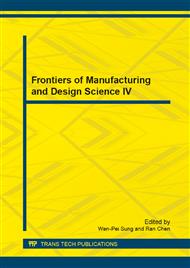p.2049
p.2053
p.2057
p.2061
p.2065
p.2069
p.2073
p.2078
p.2082
Automatically Extracting University Scholar Names Information and Classification
Abstract:
High-tech talent is one of the important social resources such as energy and material, and introducing high-tech talent is an important strategy for the development of national science and technology. To extract high-tech talent information of variety research fields from massive websites. Firstly, we study the principles of Web crawler and Web data Extraction in the paper. Then taking the U.S universities as an example, we propose an intelligent method and procedure which can extract scholars name information from websites. Finally, we apply a classification algorithm to identify Chinese scholars working at overseas and verify the validity of the method in the experimental system. The accuracy of the classification algorithm is higher than 90%, the average accuracy of result information is higher than 77%.
Info:
Periodical:
Pages:
2065-2068
Citation:
Online since:
January 2014
Authors:
Price:
Сopyright:
© 2014 Trans Tech Publications Ltd. All Rights Reserved
Share:
Citation:


